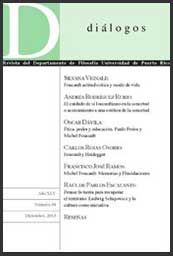Résumé
The Statesman is nowadays generally read either on its own, or with Republic and Laws. But more attention needs to be given to the fact that it is designed as part of a trilogy, alongside Theaetetus and Sophist. Reinstating the dialogue in this context gives a fuller perspective on its purposes. The Statesman (1) identifies existing socalled «statesmen», for whom the Protagoras of Theaetetus is chief apologist, as the greatest exemplars of sophistry as defined in Sophist: mere «imitators» and dealers in falsehood; (2) offers the Platonic alternative to the Protagorean vision of human life and organization sketched in the first part of Theaetetus; and (3), in common with Sophist, illustrates –after the apparent failures of Theaetetus– both what knowledge is and how it can be acquired. Finally, and controversially, the Statesman emerges, along with Theaetetus and Sophist, as part of one and the same project as the Republic.Téléchargements
Les données relatives au téléchargement ne sont pas encore disponibles.

